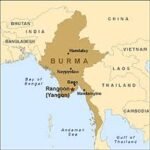The 13th India-EU Summit

The 13th India-EU Summit was held on 30 March 2016 in Brussels, Belgium. European Union (EU) was represented by President of the European Council, Donald Tusk and President of the European Commission, Jean-Claude Juncker. The summit paved path for the strategic bilateral partnership between India and EU in areas like trade and investment, climate, energy, water and migration over the next five years.
India Agenda for Action-2020 : both sides endorsed the EU-India Agenda for Action 2020 that sets out a concrete road-map for the EU-India Strategic Partnership for the next five years; EU-India Broad-based Trade and Investment Agreement (BTIA) : Both the sides have re-engaged in discussions with a view to achieve the goals defined under BTIA. Funding Infrastructural Projects in India: The European Investment Bank’s (EIB) has made commitment to support long-term investment in infrastructure crucial for environmentally sustainable social and economic development in India. The European Investment Bank (EIB) agreed to lend loan of 450 million Euros for the construction of the first metro line in Lucknow; Terrorism: The leaders adopted a Joint Declaration on Counter-terrorism. The EU and India renewed the 2010 ‘Joint Declaration on International Terrorism’ and decided to step up cooperation to counter violent extremism and radicalisation, the flow of Foreign Terrorist Fighters, sources of terrorist financing and arms supply; G20 Skills Strategy: The EU and India reaffirmed their commitment to implement the G20 Skills Strategy and expressed their intention to organise a high level skills seminar before July 2017; India-EU Water Partnership: The EU and India acknowledged the importance of enhancing cooperation on environment issues, including on the ‘Clean India’ and ‘Clean Ganga’flagship programmes. In this regard the two sides signed a Joint Declaration on the India-EU Water Partnership; Arbitration procedure on the Italian Marines: The EU and India expressed their confidence in the arbitration procedure on the Italian Marines case which is currently underway in the framework of the United Nations Convention on the Law of the Sea (UNCLOS); Common Agenda on Migration and Mobility: The EU and India highlighted the importance of contacts between their citizens and agreed for the establishment of a Common Agenda on Migration and Mobility. The two sides agreed to enhance cooperation in the field of cultural heritage and educational cooperation; India-EU Science and Technology Cooperation Agreement: The EU and India aim to intensify their cooperation in frontier areas of S&T and in addressing current global challenges including health and welcomed the setting up of mechanisms for jointly financing research and innovation.
CROSS REFRANCES
Formerly known as European Community (EC) or European Economic Community (EEC,1958, initially increasing economic cooperation between six countries: Belgium, Germany, France, Italy, Luxembourg and the Netherlands); The European Union (EU) is a union of twenty-eight independent states and founded to enhance political, economic and social co-operation. Founded on 1st November, 1993, the euro currency was introduced in 1999.
The European Parliament is the EU’s law-making body. It is directly elected by EU voters every 5 years, with legislative, supervisory, and budgetary responsibilities.
The European Commission is the EU’s politically independent executive arm. It is alone responsible for drawing up proposals for new European legislation, and it implements the decisions of the European Parliament . Speaks on behalf of all EU countries in international bodies, in particular in areas of trade policy and humanitarian aid.
The European Council brings together EU leaders to set the EU’s political agenda. It represents the highest level of political cooperation between EU countries.
INDO-EU RELATIONS
The European Union and the India relations date to the early 1960’s. A cooperation agreement signed in 1994 took the bilateral relationship beyond trade and economic cooperation. The first India-EU Summit took place in Lisbon in 28 June 2000 and marked a watershed in the evolution of the relationship; at the 5th India-EU Summit held at The Hague in 2004, the relationship was upgraded to a ‘Strategic Partnership’. The two sides adopted a Joint Action Plan in 2005 (which was reviewed in 2008) that provided for strengthening dialogue and consultation mechanisms in the political and economic spheres, enhancing trade and investment, and bringing peoples and cultures together. India and the EU are in the process of negotiating a bilateral Broad-based Trade and Investment Agreement (BTIA) since 2007 which will significantly enhance the commercial relationship once implemented. So far 13 annual Summits have been held, the latest one in Brussels on March 2016.






0 Comments